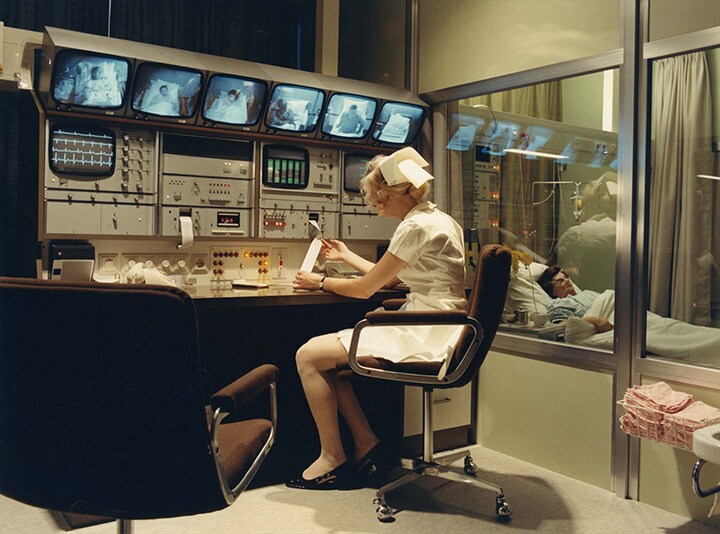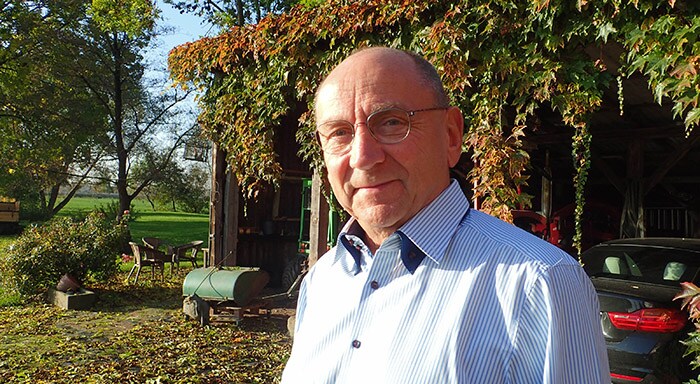Blog
Share on social media
‘What is your problem today?’ Making magic happen with breakthrough medical imaging inventions
It’s a question we’ve all been asked perhaps too often when we were younger. ‘What do you want to be when you grow up?’ It’s also a question many of us find ourselves asking our own kids and other young people now. Astronaut, policeman, doctor, are some of the common ambitions. But, how many kids at the age of six do you hear say they want to be a physicist and work with computers, and then actually grow up to do just that? Philips Research Fellow, Roland Proksa, knew exactly what he wanted to do the moment he stepped into a university hospital as a young child. “I remember precisely how the rooms looked and was immediately fascinated when I saw a giant computer spread across the many rooms,” he recounts. And that’s where the magic began.

Roland, now a Fellow at Philips Research, has worked in diverse research roles since the 80s. He’s been busy innovating a range of medical imaging technologies – mostly around magnetic resonance (MR), computerized tomography (CT) and ultrasound – that Philips either uses in its own products or licenses to others to use. To date, he’s obtained more than 100 patents for his and his team’s breakthrough inventions, which is why Philips is awarding him the special Diamond Invention Award for 2020.
The award tells me that my scientific contributions have a solid foundation in the ‘real world’ and are not just scientific results without any practical value. I love to improve things around me, so it feels good to know that they impact people’s lives positively.
Magic that’s useful
Roland is proud, but humble. “The award tells me that my scientific contributions have a solid foundation in the ‘real world’ and are not just scientific results without any practical value. I love to improve things around me, it feels good to know that my work impact people’s lives positively.” One of his early patents was for CT imaging where he invented a more targeted scanning method to prevent patients from being exposed to too much radiation where it is not necessary. Another CT invention he is very proud of was the development of a math algorithm and computer chip that significantly increased the speed at which CT images could be reconstructed. This means that doctors could more quickly analyze their patient’s images and diagnose a problem. “If I look into the eyes of young children or their parents sitting in an oncology therapy center, I feel really bad sometimes. I’m glad to have the chance to help these people a bit through my daily work, for example by improving the diagnostics.”
If I look into the eyes of young children or their parents sitting in an oncology therapy center, I feel really bad sometimes. I’m glad to have the chance to help these people a bit through my daily work...
The algorithm and chip have been an integral part of the Philips CT scanner for more than 15 years. Even today, where the chips have been replaced by powerful computing graphic cards originating from the gaming industry, his original math concept is still used as the basis for image reconstruction on them. This invention has enabled Philips to extend high-quality and efficient care to patients, while also saving a lot of money given that the same algorithm and chip could be used for so long. Unsurprisingly, Philips awarded the invention with an innovation award.
‘What is your problem today?’
It takes a long time before any technological development can be patented. Roland explains: “We carefully watch what’s happening in the scientific and medical worlds, we stay apprised of new technological developments, we learn what our customers need or would like to have, and we watch the competition. It’s also critically important to work multi-disciplinarily – across the fields of physics, electronics, math, computing, and more.” Roland specifically looks for problems that have never been solved and where healthcare staff are in need of a solution. Many of his friends are doctors at leading hospitals in Germany (where he’s based) and around the world. “Sometimes I simply call a radiologist up and ask, what is your problem today?”
Sometimes I simply call a radiologist up and ask, what is your problem today?
At the moment, Roland and his colleagues are working on patenting another innovation, redesigning a powerful spectral CT scanning machine to make it more cost-efficient for hospitals and user-friendly for doctors. Existing spectral CT machines are highly complex with a complicated user interface. As a result, only a few of the most specialized hospitals in the world can, and want to, use it—it’s an expensive machine and doctors and medical staff have to be re-trained to use it. This is why Roland wanted to change it. “It’s disappointing to see such powerful technology not being used as a standard of care across hospitals because it is too expensive and not easy to integrate in the hospital. So, we have remodeled the interface to look the same as the older CT machines, so there is no need for retraining. Approximately 10 patents cover the machine, eight for the tech and two for the interface.”
The future is digital
Looking ahead to the future, Roland sees tech becoming more digital and artificial intelligence playing a much bigger role. He believes we have to watch out for complexity limitations though, as evidenced by the last example. “Essentially, as systems become more complex, it will be harder to find people who can deal with all of those complexities. Then you will suddenly get a lot of people with expertise in only small parts of a larger machine. That drives up costs and impacts the standard of healthcare. We aim to address the quadruple aim with better healthcare outcomes against lower costs, while improving patient and staff experience. That means that we have to stay conscious of how we’re developing and driving technological advancements, like AI. Chief Technology Officer Henk van Houten elaborates on this very point - the possibilities and limitations of AI and why AI and deep clinical knowledge need to go hand in hand in healthcare. Yet, Roland believes Philips is on the right path by focusing on solving the big problems. “It’s a matter of balancing commercial and business questions with the ethical, human impacts and choosing to do things because it’s better for the world. Because in the end, we operate in an environment where our work has an impact on the most important stakeholder of all: people.”

Roland Proksa, Research Fellow at Philips in Hamburg
With the Invention Awards, the Management wishes to recognize inventors who reach the mark of 10 (Bronze), 25 (Silver), 50 (Gold), and 100 (Diamond) patent applications during their work for Philips, or as a result of a Philips Research contract (with strategic partners). The counted patents include the number of patent families that are still active 66 months after the first priority date of the patent family, and those where at least one patent right has been granted in a country.
